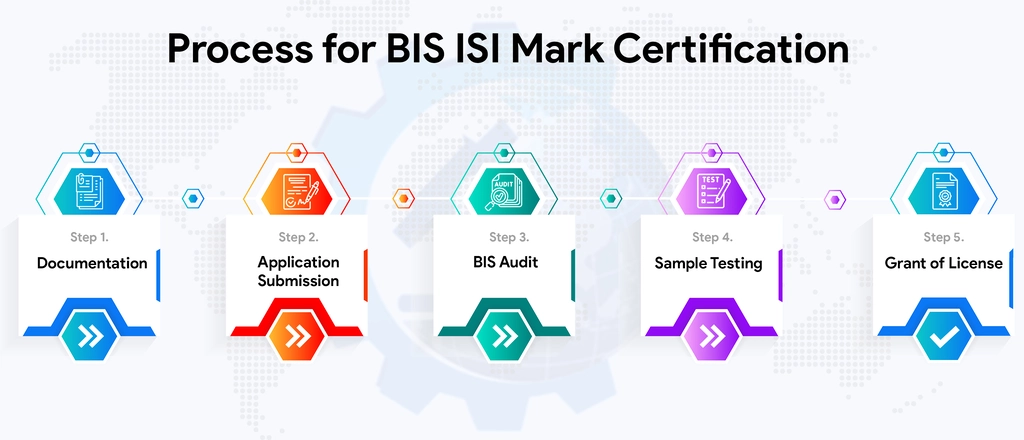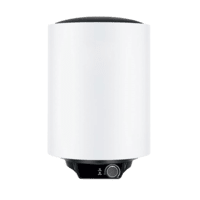BIS CERTIFICATION PROCESS INFORMATION Appliances for Stationary Storage-Type Electric Water Heaters IS 302 (Part 2/Sec 21): 2018
Introduction
Stationary storage-type electric water heaters are essential household appliances designed to heat and store water for extended periods, ensuring hot water is readily available when needed. Widely used in residential, commercial, and industrial settings, these heaters provide a reliable source of hot water for bathing, cleaning, and cooking in homes, as well as for continuous hot water supply in hotels, hospitals, and offices. The electric water heater industry is a significant segment of the home appliances market, experiencing growing demand driven by urbanization, rising living standards, and the increasing need for energy-efficient heating solutions. airness and safety in competitions, including prestigious events like the Olympics.
BIS (Bureau of Indian Standards) certification for stationary storage-type electric water heaters under IS 302 (Part 2/Sec 21): 2018 is essential to ensure the safety, performance, and energy efficiency of these appliances. This certification guarantees that the product adheres to the stringent safety standards mandated by the Indian government, thereby minimizing the risk of electrical hazards and ensuring the appliance's longevity and reliability. The market for electric water heaters in India is robust, driven by urbanization, modernization, and rising consumer awareness of energy-efficient appliances. The introduction of energy labels and stringent safety standards has further increased the need for BIS certification, making it crucial for manufacturers to remain competitive in this growing market.
Overview of IS 302 (Part 2/Sec 21): 2018
IS 302 (Part 2/Sec 21): 2018 is the Indian Standard that specifies the safety requirements for stationary storage-type electric water heaters. This standard is part of the broader IS 302 series, which outlines safety standards for household and similar electrical appliances. The standard covers aspects such as electrical safety, construction, performance, and energy efficiency, ensuring that electric water heaters are safe for use and meet the required performance criteria.
Key Aspects of IS 302 (Part 2/Sec 21): 2018
- Electrical Safety Requirements: The standard specifies the necessary safety measures to protect users from electrical hazards such as electric shocks, short circuits, and overheating.
- Construction Guidelines: It outlines the construction requirements for electric water heaters, including materials used, design specifications, and insulation standards, ensuring durability and safe operation.
- Performance Standards: IS 302 (Part 2/Sec 21): 2018 includes performance criteria for water heaters, ensuring that they heat water efficiently and maintain the desired temperature for extended periods.
- Energy Efficiency: The standard emphasizes energy efficiency, promoting the use of appliances that consume less electricity while delivering optimal performance, contributing to energy conservation.
- Testing and Compliance:The standard mandates rigorous testing procedures to verify that electric water heaters comply with safety and performance standards before they are certified.
Key highlights
| Product Name | Stationary Storage-Type Electric Water Heaters |
| Applicable Indian Standard | IS 302 (Part 2/Sec 21): 2018 |
| Applicable Certification Scheme | Product Certification Scheme (ISI Mark Scheme) Scheme 1 |
| Applicable Mark: | BIS Standard Mark (ISI Logo) |
| Compliance Requirement | Mandatory |
| Quality Control Order | Click here |
| Ministry | Ministry of Consumer Affairs, Food & Public Distribution |
| Scope of the Indian Standard | The Indian Standard IS 302 (Part 2/Sec 21): 2018 outlines the safety, construction, performance, and energy efficiency requirements for stationary storage-type electric water heaters. It ensures that these appliances are safe, reliable, and energy-efficient, suitable for use in residential, commercial, and industrial environments. |
Applicable Tests
- Leakage Current & Electric Strength
- Transient Overvoltage
- Overload Protection of Transformers and associated circuits
- Abnormal Operation
- Stability & Mechanical Hazards
- Mechanical Strength
- Internal Wiring
- Components
- Supply Connections & external flexible cords
- Terminals for external conductors
- Screws & Connections
- Clearances, creepage distances & solid insulation
- Resistance to heat & fire
- Resistance to rusting

NOTE:
For Detailed Information about the Procedure for BIS ISI Certification, Visit :
Timeline for BIS Certification
The approximate timeline to obtain BIS certification for Appliances for stationary storage type electric water heaters to use the ISI mark as per IS 302 (Part 2/Sec 21): 2018 is as follows:
- For Indian Manufacturers (Standard Timeframe – 30 days)
- For Foreign Manufacturers (Standard Timeframe – 180 days)
Benefits of BIS Certification
BIS certification offers several significant benefits:
| Benefit | Description |
|---|---|
| Access to the Indian Market | BIS certification allows manufacturers to legally sell stationary storage-type electric water heaters in India, providing access to a vast and growing market. |
| Compliance with Indian Standards | Certification ensures that electric water heaters meet the Indian standards for safety, performance, and energy efficiency, reducing the risk of accidents and ensuring customer satisfaction. |
| Enhanced Product Credibility | BIS-certified water heaters are recognized for adhering to high safety and quality standards, enhancing the credibility of the product in both domestic and international markets. |
| Increased Customer Trust | Customers are more likely to trust and purchase BIS-certified water heaters, knowing that they meet the necessary safety and performance standards. |
| Benefits for MSMEs | Micro, Small, and Medium Enterprises (MSMEs) can benefit from BIS certification by gaining the ability to compete with larger players, ensuring their products meet the same high standards, and accessing new market opportunities. |
Case Study
A leading manufacturer of electric water heaters sought to expand its market share in India. To achieve this, the company decided to obtain BIS certification for its stationary storage-type electric water heaters under IS 302 (Part 2/Sec 21): 2018. The certification process involved rigorous testing and compliance with the safety and performance standards outlined by the Bureau of Indian Standards. The successful certification not only allowed the company to legally market its products in India but also enhanced its reputation for safety and quality. As a result, the company experienced a significant increase in customer trust, leading to higher sales and expanded market reach.
Conclusion
The successful BIS certification of stationary storage-type electric water heaters under IS 302 (Part 2/Sec 21): 2018 highlights the importance of adhering to stringent safety and performance standards. For manufacturers, obtaining this certification is not just a regulatory requirement but a strategic move that ensures product safety, enhances market credibility, and fosters customer trust. By meeting BIS standards, companies can access the growing Indian market, compete effectively, and contribute to the overall safety and energy efficiency of household appliances.
Aleph INDIA is the world's leading consulting firm and a trusted service provider, specializing in Product Certification, Testing, Training, Regulatory Compliances, and Indian Standard Assessments. Our comprehensive services include ISI Certification, Foreign Manufacturer Certification, BIS Registration for Electronic and IT Goods, EPR Registration, TEC Certification, WPC License, and more. Contact us for a hassle-free certification process, and ensure your products meet the highest standards with ease.
For more updates and detailed procedures, stay connected with Aleph INDIA and ensure your products are always compliant and top-quality.
Frequently Asked Questions
International Audits & Participation
Testimonials
BIS REGISTRATION FOR ELECTRONIC & IT PRODUCT
In the era of globalization, world trade is growing rapidly and henceforth, Manufacturing and Import/Export businesses are also growing drastically...View More
BIS CERTIFICATE FOR FOREIGN MANUFACTURER
The Economy of India-the fastest developing economy on the globe with the capabilities that help it matches up with the biggest international...View More
PRODUCT CERTIFICATION SCHEME (ISI MARK) FOR DOMESTIC MANUFACTURERS
Anything a person buys from food to cars, clothes to electronics, branded to unnamed products there is always a question that wanders in one’s...View More
WIRELESS PLANNING AND COORDINATION (WPC)
WPC: Wireless means communication done from one point to another point without the wires and cables. Electromagnetic waves carry the ...View More
BUREAU OF ENERGY EFFICIENCY (BEE) CERTIFICATE
BEE CERTIFICATE: Energy is the future, and its conservation is the way of the bright future. Everyone claims the environment is important...View More
E-WASTE MANAGEMENT
E-waste is one of the world's fastest-growing trash streams. We currently manufacture almost 50 million tones of it each year...View More
View All Services
Request a call back.
Would you like to speak to one of our Senior Technical advisers over the phone? Just submit your details and we’ll be in touch shortly. You can also email us if you would prefer.






























